Films with theme "Documentary films about law", sorted by revenue

Cocaine Cowboys (2006)
, 1h56Origin USA
Genres Documentary, Action, Crime
Themes Medical-themed films, Films about drugs, Documentary films about law, Documentary films about health care, Documentary films about cities
Cocaine Cowboys chronicles the development of the illegal drug trade in Miami during the 1970s and 1980s with interviews of both law enforcement and organized crime leaders, in addition to news footage from the era. The film reveals that in the 1960s and early 1970s, marijuana was the primary import drug into the region. During the 1970s, marijuana imports were replaced by the much more lucrative cocaine imports; as more cocaine was smuggled into the United States, the price dropped, allowing it to turn "blue collar," and be available to a wider market. Drug importers reveal several of the different methods used to import the drug into Florida.
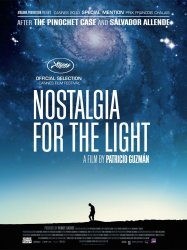
Nostalgia for the Light (2010)
, 1h30Directed by Patricio Guzmán
Origin Chili
Genres Drama, Documentary
Themes Seafaring films, Politique, Transport films, Documentary films about law, Documentary films about politics, Political films, Films about Latin American military dictatorships
Actors Patricio Guzmán, Víctor González
Nostalgia for the Light opens with a view of a telescope and images of our moon. The narrator, Patricio Guzmán, describes how he came to love astronomy and begins to remember his childhood where “only the present moment existed.” Soon, Chile became the center of the world as astronomers and scientists flocked to Chile to observe the universe through the thin and clear skies. We next see Guzmán walking in the Atacama Desert, a place with absolutely no moisture, so much so that it resembles the surface of Mars. This desert, and its abundance of history, becomes the focus of the documentary. Because of how dry it is, the desert hosts the untouched remains of fish, mollusks, Indian carvings, and even mummified humans.

Kids for Cash (2014)
, 1h42Origin USA
Genres Drama, Thriller, Documentary, Crime
Themes Prison films, Documentary films about law, Documentary films about law enforcement
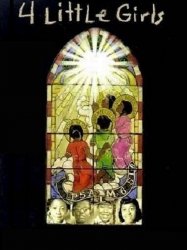
4 Little Girls (1997)
, 1h42Directed by Spike Lee
Origin USA
Genres Documentary, Historical
Themes Films about racism, Films about terrorism, Documentary films about racism, Documentary films about law, Documentary films about war, Documentary films about historical events, Documentaire sur une personnalité, Documentary films about politics, Documentary films about terrorism, Political films
Actors Ossie Davis, Spike Lee, Bill Cosby, Walter Cronkite
Film documentaire, 4 little girls revient sur l'attentat à la bombe dans une église afro-américaine qui, en 1963, tua quatre fillettes âgées de 11 à 14 ans.
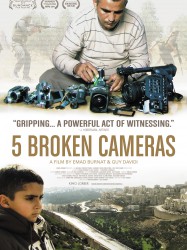
5 Broken Cameras (2011)
, 1h34Origin Israel
Genres Drama, War, Documentary, Crime
Themes Films set in Africa, Films about films, Films about religion, Documentary films about business, Documentary films about the film industry, Documentary films about law, Documentary films about war, Documentary films about historical events, Documentaire sur une personnalité, Documentary films about politics, Documentary films about religion, Political films, Films about Jews and Judaism, Documentary films about films
There are five cameras — each with its own story. When his fourth son, Gibreel, is born in 2005, self-taught cameraman Emad Burnat, a Palestinian villager, gets his first camera. At the same time in his village of Bil’in, the Israelis begin bulldozing village olive groves to build a barrier to separate Bil'in from the Jewish Settlement Modi'in Illit. The barrier's route cuts off 60% of Bil'in farmland and the villagers resist this seizure of more of their land by the settlers.
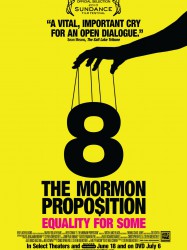
8: The Mormon Proposition (2010)
, 1h20Directed by Steven Greenstreet
Origin USA
Genres Documentary
Themes Films about families, Films about religion, Films about sexuality, LGBT-related films, Documentary films about law, Documentaire sur l'homosexualité, Documentary films about religion, LGBT-related films, Same-sex marriage in film, LGBT-related films about religion, LGBT-related film
Actors Dustin Lance Black
Director Reed Cowan, who is a former Mormon missionary, "planned on making a film about gay teen homelessness and suicide in Utah, but switched his focus to Mormon ideology because of how it contributes to the homophobia that causes these problems". The film focuses on the wealth and power of the The Church of Jesus Christ of Latter-day Saints, and how the Church uses the National Organization for Marriage to advocate for denial of rights to lesbian, gay, bisexual, and transgender (LGBT) Americans. It states that LDS Church leader Thomas S. Monson asked to ensure the passage of the controversial California Proposition 8. It also states that many homeless people in Utah are LGBT teens who were abandoned by their Mormon parents.

The Missing Picture (2013)
, 1h32Directed by Rithy Panh
Origin France
Genres War, Documentary, Historical, Animation
Themes Politique, Films about racism, Documentary films about racism, Documentary films about law, Documentary films about war, Documentary films about historical events, Documentaire sur une personnalité, Political films, Autobiographical documentary films
Actors Randal Douc, Jean-Baptiste Phou, Rithy Panh
En utilisant des figurines d'argile et des images d'archive, Rithy Panh témoigne des atrocités commises par les Khmers rouges au Cambodge entre 1975 et 1979.
 , 2h9
, 2h9Directed by Joe Berlinger
Origin USA
Genres Documentary, Crime
Themes Films about immigration, Mafia films, Documentary films about law, Gangster films
Narrating the trials of gangster James 'Whitey' Bulger, using the legal proceedings as a springboard to explore allegations of corruption within the highest levels of law enforcement.

This Is Not a Film (2011)
, 1h15Directed by Jafar Panahi, Mojtaba Mirtahmasb
Origin Iran
Genres Documentary
Themes Films about films, Documentary films about law, Documentaire sur une personnalité
Actors Jafar Panahi, Mojtaba Mirtahmasb
Panahi is under house arrest, awaiting the result of his appeal of a six-year prison sentence and twenty-year ban on film-making, leaving the country or giving media interviews for "propaganda against the regime". Bored and desperate that this verdict may mean his artistic death, he starts documenting his life. He begins filming himself in his apartment, then calls his friend and collaborator, Mirtahmasb, who arrives at the apartment and takes over the camera. Banned from film making and determined to save at least some of his artistic visions, Panahi reads some of the scenario from the movie he was planning to make. Upon hearing fireworks marking the ancient Iranian festival Chaharshanbe Suri that precedes the Persian new year, Nouruz, and other suspicious noises resembling gunshots, he gets scared and quickly stops this project. He turns on the TV to hear the news. We see news about the tsunami in Japan and later it is announced that Iran's president has banned any fireworks and bonfires that used to mark Chaharshanbe Suri.
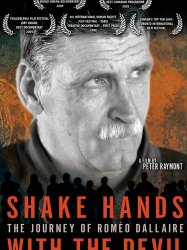 , 1h31
, 1h31Directed by Peter Raymont
Origin Canada
Genres Documentary
Themes Films set in Africa, Films about racism, Documentary films about racism, Documentary films about law, Documentary films about war, Documentary films about historical events, Documentaire sur une personnalité, Documentary films about politics, Political films
Between April and June 1994, an estimated 800,000 Rwandans were killed in 100 days. Most of the dead were Tutsis by the hands of the Hutus. The genocide began when Rwandan president Juvenal Habyarimana's plane was shot down above Kigali airport on April 6, 1994.
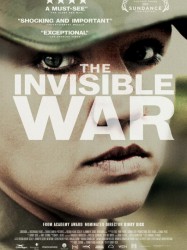
The Invisible War (2012)
, 1h37Directed by Kirby Dick
Origin USA
Genres Drama, War, Documentary, Historical, Crime
Themes Films about sexuality, Rape in fiction, Documentary films about law, Documentary films about war, Documentary films about historical events, Documentaire sur une personnalité, Documentary films about health care
Actors Kirby Dick, Amy Ziering
The Invisible War features interviews with veterans from multiple branches of the United States Armed Forces who recount the events surrounding their assaults. Their stories show many common themes, such as the lack of recourse to an impartial justice system, reprisals against survivors instead of against perpetrators, the absence of adequate emotional and physical care for survivors, the unhindered advancement of perpetrators' careers, and the forced expulsion of survivors from service.
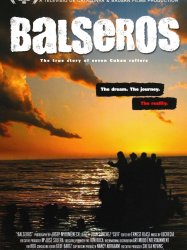
Rafters (2002)
Genres Documentary
Themes Films about immigration, Seafaring films, Transport films, Documentary films about law, Documentary films about historical events, Documentaire sur une personnalité, Documentary films about technology
Actors Maria Celeste Arrarás

Crime After Crime (2011)
Origin USA
Genres Documentary, Crime
Themes Documentary films about law, Documentaire sur une personnalité
Actors Joshua Safran
Crime After Crime tells the dramatic story of the legal battle to free Debbie Peagler, an incarcerated survivor of domestic violence. She was wrongly convicted of the murder of her abusive boyfriend, and sentenced to 25 years to life in prison.
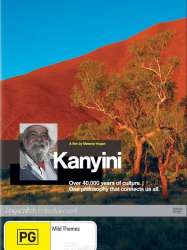
Kanyini (2006)
, 53minutesGenres Documentary
Themes Seafaring films, Transport films, Documentary films about law, Documentaire sur une personnalité
 Connection
Connection
